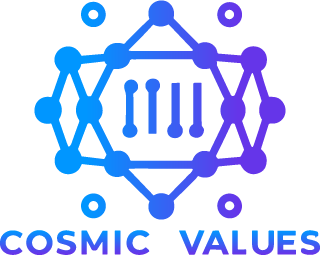The world of biotechnology is constantly evolving, pushing the boundaries of science and medicine. At the forefront of this exciting field lie the talented individuals who make these advancements possible – those who hold biotechnology jobs.
This article delves into the diverse landscape of biotechnology jobs, exploring the various career paths, educational requirements, and essential skills needed to thrive in this dynamic field. Whether you’re a recent graduate or a seasoned professional seeking a new direction, this guide provides valuable insights to navigate your journey in the world of biotechnology.
A Spectrum of Opportunities: Exploring Diverse Roles in Biotechnology Jobs
The world of biotechnology jobs encompasses a wide range of specialties, each playing a crucial role in driving innovation and progress. Here’s a glimpse into some of the key areas:
- Research and Development (R&D): R&D professionals are the heart and soul of the biotechnology industry. They conduct research, develop new technologies, and experiment with novel approaches to address various medical challenges. This includes roles like molecular biologists, biochemists, and bioinformaticians.
- Manufacturing: The production of life-saving drugs, vaccines, and other bioproducts requires skilled professionals in manufacturing. These individuals ensure quality control, maintain sterile environments, and oversee the efficient operation of production facilities. Examples include biomanufacturing technicians, quality control analysts, and production scientists.
- Clinical Research: Bringing new treatments from the lab to patients requires thorough clinical trials. Clinical research professionals coordinate these trials, ensuring adherence to ethical guidelines and collecting valuable data to assess the safety and efficacy of new therapies. This field includes clinical research associates, coordinators, and investigators.
- Regulatory Affairs: Navigating the complex world of regulations and ensuring compliance is essential for bringing bioproducts to market. Regulatory affairs professionals work closely with regulatory agencies, ensuring all products meet safety and quality standards. This includes roles like regulatory affairs specialists and compliance officers.
- Bioinformatics: This field bridges the gap between biology and computer science. Bioinformaticians analyze vast sets of biological data, using computational tools to identify patterns, develop models, and support various research endeavors.
This list is not exhaustive, and the landscape of biotechnology jobs continues to expand as the field evolves. With new discoveries and advancements on the horizon, the future promises even more exciting opportunities.
Charting Your Course: Educational Requirements and Skill Development
While the specific educational requirements for biotechnology jobs can vary depending on the chosen field, a strong foundation in science is essential. A bachelor’s degree in biology, chemistry, biochemistry, or a related field is typically the minimum qualification. However, for certain advanced roles, pursuing a master’s degree or even a Ph.D. might be necessary.
Beyond academic qualifications, honing essential skills is crucial for success in biotechnology jobs. These include:
- Technical Skills: Depending on the specific role, proficiency in laboratory techniques, data analysis tools, and software specific to the field might be required.
- Problem-solving and Analytical Skills: The ability to approach complex problems, analyze data, and think critically is essential for driving innovation and making informed decisions.
- Communication Skills: Effective communication, both written and verbal, is key to collaborating with colleagues, presenting findings, and interacting with stakeholders.
- Teamwork and Collaboration: Success in biotechnology often relies on the combined expertise of diverse teams. The ability to work effectively within a team and collaborate toward shared goals is crucial.
- Attention to Detail and Accuracy: Working in the field of biotechnology often involves meticulous procedures and critical tasks. Demonstrating a high level of attention to detail and ensuring accuracy is paramount.
Embracing the Future: A Rewarding Career Path in Biotechnology
Biotechnology jobs offer a unique blend of intellectual challenge, personal fulfillment, and the potential to make a real difference in the lives of others. As the field continues to evolve, the need for skilled professionals will only grow. By equipping themselves with the necessary education, skills, and dedication, individuals can embark on a rewarding and impactful career path in this dynamic and ever-evolving field.
Remember, the world of biotechnology is waiting for your talents and contributions. Embrace the challenge, explore your options, and take the first step towards a fulfilling career in shaping the future of healthcare and scientific discovery.
Frequently Asked Questions (FAQs) About Biotechnology Jobs
What is the job outlook for the biotechnology industry?
The outlook for biotechnology jobs is projected to be positive, with the Bureau of Labor Statistics in the US anticipating a growth rate of 8% for life sciences occupations between 2022 and 2032, much faster than the average for all occupations [1]. This growth is driven by factors like increasing demand for new drugs and therapies, personalized medicine, and advancements in areas like gene editing.
Is a Ph.D. required for all biotechnology jobs?
No, a Ph.D. is not required for all biotechnology jobs. While some research and leadership positions might necessitate a doctoral degree, many entry-level and mid-level roles can be attained with a bachelor’s degree in a relevant field, combined with relevant experience and skill development.
What are the salary ranges for biotechnology jobs?
Salaries for biotechnology jobs can vary significantly depending on factors like experience, education, location, and specific job title. According to Indeed, the average base salary for biotechnology jobs in the US is around $95,000 per year as of February 2024 [2].
What are some resources for finding biotechnology jobs?
Several online platforms and resources can help you find biotechnology jobs. These include job boards specific to the life sciences industry, company websites, professional organizations, and online networking platforms like LinkedIn.
Conclusion
The world of biotechnology jobs presents a multitude of exciting opportunities for individuals passionate about science, innovation, and making a positive impact. By exploring the diverse career paths, acquiring the necessary skills, and staying updated on the latest advancements, individuals can navigate this dynamic field with confidence and contribute to shaping the future of healthcare and scientific discovery.



